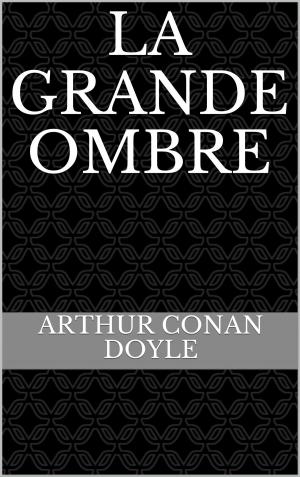The Private Life, Lord Beaupré, The Visits
Fiction & Literature, Literary Theory & Criticism, Classics| Author: | by Henry James | ISBN: | 1230000726047 |
| Publisher: | CP | Publication: | October 17, 2015 |
| Imprint: | Language: | English |
| Author: | by Henry James |
| ISBN: | 1230000726047 |
| Publisher: | CP |
| Publication: | October 17, 2015 |
| Imprint: | |
| Language: | English |
We talked of London, face to face with a great bristling, primeval glacier. The hour and the scene were one of those impressions which make up a little, in Switzerland, for the modern indignity of travel—the promiscuities and vulgarities, the station and the hotel, the gregarious patience, the struggle for a scrappy attention, the reduction to a numbered state. The high valley was pink with the mountain rose, the cool air as fresh as if the world were young. There was a faint flush of afternoon on undiminished snows, and the fraternizing tinkle of the unseen cattle came to us with a cropped and sunwarmed odor. The balconied inn stood on the very neck of the sweetest pass in the Oberland, and for a week we had had company and weather. This was felt to be great luck, for one would have made up for the other had either been bad. The weather certainly would have made up for the company; but it was not subjected to this tax, for we had by a happy chance the fleur des pois: Lord and Lady Mellifont, Clare Vawdrey, the greatest (in the opinion of many) of our literary glories, and Blanche Adney, the greatest (in the opinion of all) of our theatrical. I mention these first, because they were just the people whom in London, at that time, people tried to "get." People endeavored to "book" them six weeks ahead, yet on this occasion we had come in for them, we had all come in for each other, without the least wire-pulling. A turn of the game had pitched us together, the last of August, and we recognized our luck by remaining so, under protection of the barometer. When the golden days were over—that would come soon enough—we should wind down opposite sides of the pass and disappear over the crest of surrounding heights. We were of the same general communion, we participated in the same miscellaneous publicity. We met, in London, with irregular frequency; we were more or less governed by the laws and the language, the traditions and the shibboleths of the same dense social state. I think all of us, even the ladies, "did" something, though we pretended we didn't when it was mentioned. Such things are not mentioned indeed in London, but it was our innocent pleasure to be different here. There had to be some way to show the difference, inasmuch as we were under the impression that this was our annual holiday. We felt at any rate that the conditions were more human than in London, or that at least we ourselves were. We were frank about this, we talked about it: it was what we were talking about as we looked at the flushing glacier, just as some one called attention to the prolonged absence of Lord Mellifont and Mrs. Adney. We were seated on the terrace of the inn, where there were benches and little tables, and those of us who were most bent on proving that we had returned to nature were, in the queer Germanic fashion, having coffee before meat.
We talked of London, face to face with a great bristling, primeval glacier. The hour and the scene were one of those impressions which make up a little, in Switzerland, for the modern indignity of travel—the promiscuities and vulgarities, the station and the hotel, the gregarious patience, the struggle for a scrappy attention, the reduction to a numbered state. The high valley was pink with the mountain rose, the cool air as fresh as if the world were young. There was a faint flush of afternoon on undiminished snows, and the fraternizing tinkle of the unseen cattle came to us with a cropped and sunwarmed odor. The balconied inn stood on the very neck of the sweetest pass in the Oberland, and for a week we had had company and weather. This was felt to be great luck, for one would have made up for the other had either been bad. The weather certainly would have made up for the company; but it was not subjected to this tax, for we had by a happy chance the fleur des pois: Lord and Lady Mellifont, Clare Vawdrey, the greatest (in the opinion of many) of our literary glories, and Blanche Adney, the greatest (in the opinion of all) of our theatrical. I mention these first, because they were just the people whom in London, at that time, people tried to "get." People endeavored to "book" them six weeks ahead, yet on this occasion we had come in for them, we had all come in for each other, without the least wire-pulling. A turn of the game had pitched us together, the last of August, and we recognized our luck by remaining so, under protection of the barometer. When the golden days were over—that would come soon enough—we should wind down opposite sides of the pass and disappear over the crest of surrounding heights. We were of the same general communion, we participated in the same miscellaneous publicity. We met, in London, with irregular frequency; we were more or less governed by the laws and the language, the traditions and the shibboleths of the same dense social state. I think all of us, even the ladies, "did" something, though we pretended we didn't when it was mentioned. Such things are not mentioned indeed in London, but it was our innocent pleasure to be different here. There had to be some way to show the difference, inasmuch as we were under the impression that this was our annual holiday. We felt at any rate that the conditions were more human than in London, or that at least we ourselves were. We were frank about this, we talked about it: it was what we were talking about as we looked at the flushing glacier, just as some one called attention to the prolonged absence of Lord Mellifont and Mrs. Adney. We were seated on the terrace of the inn, where there were benches and little tables, and those of us who were most bent on proving that we had returned to nature were, in the queer Germanic fashion, having coffee before meat.















